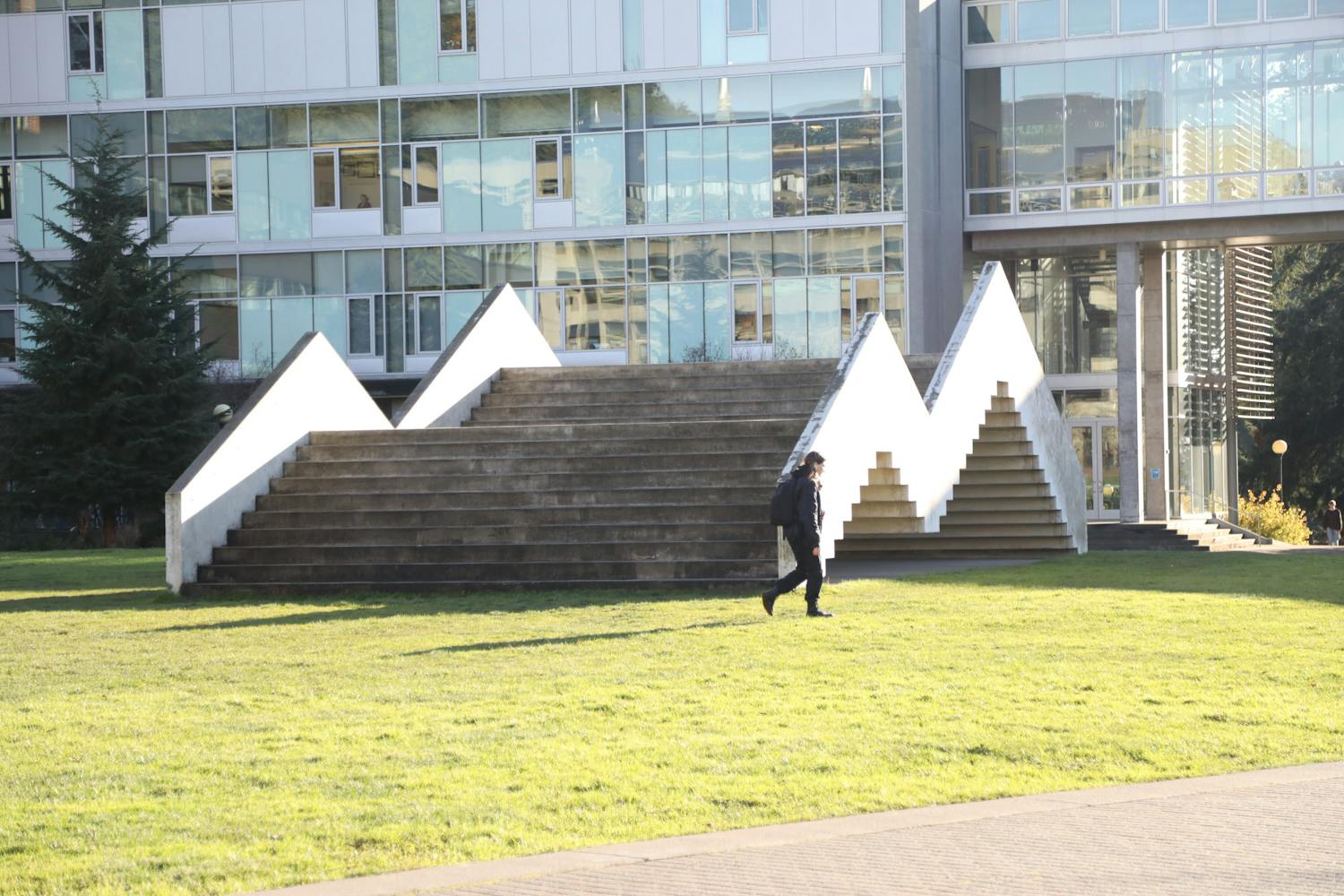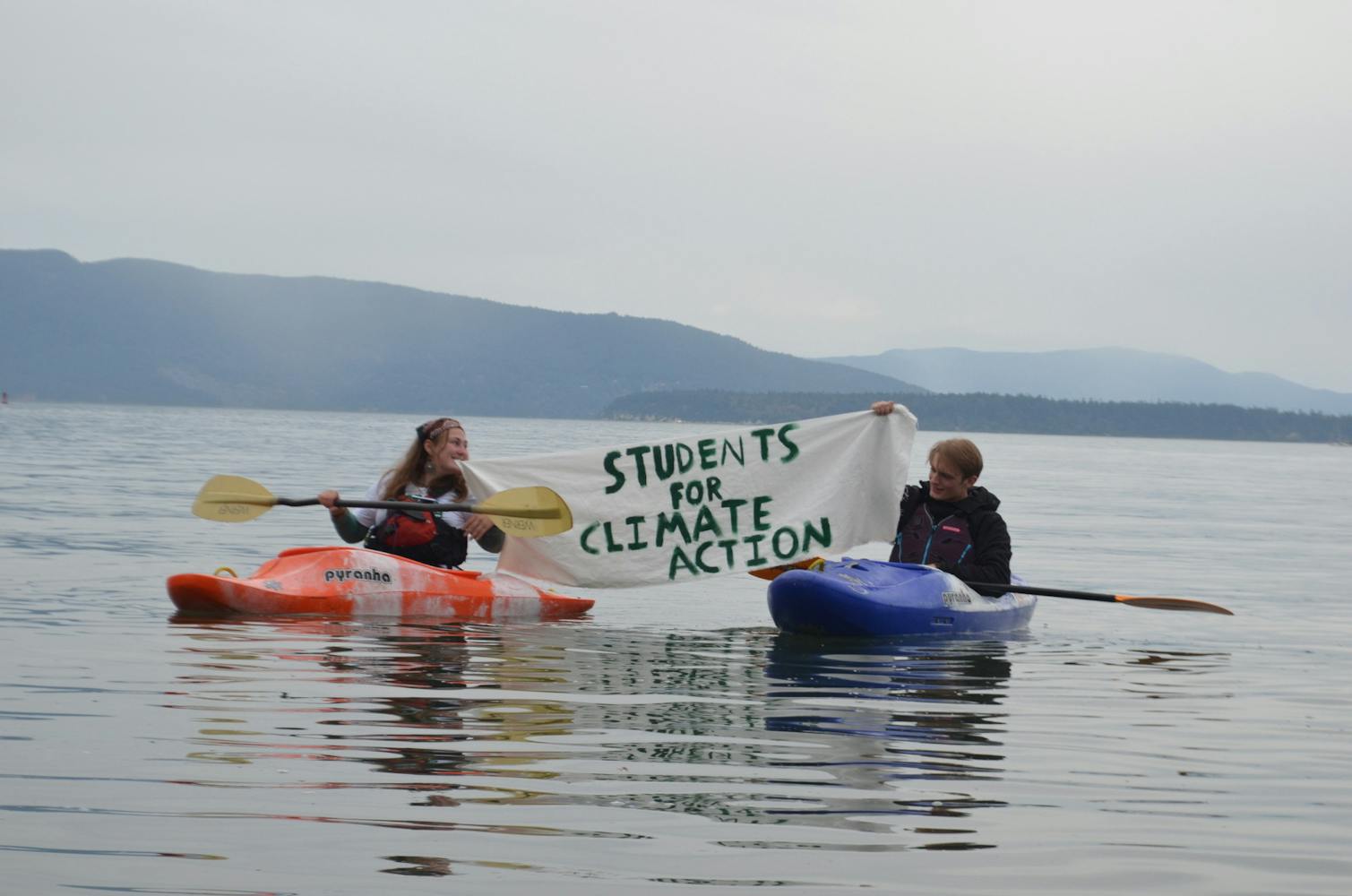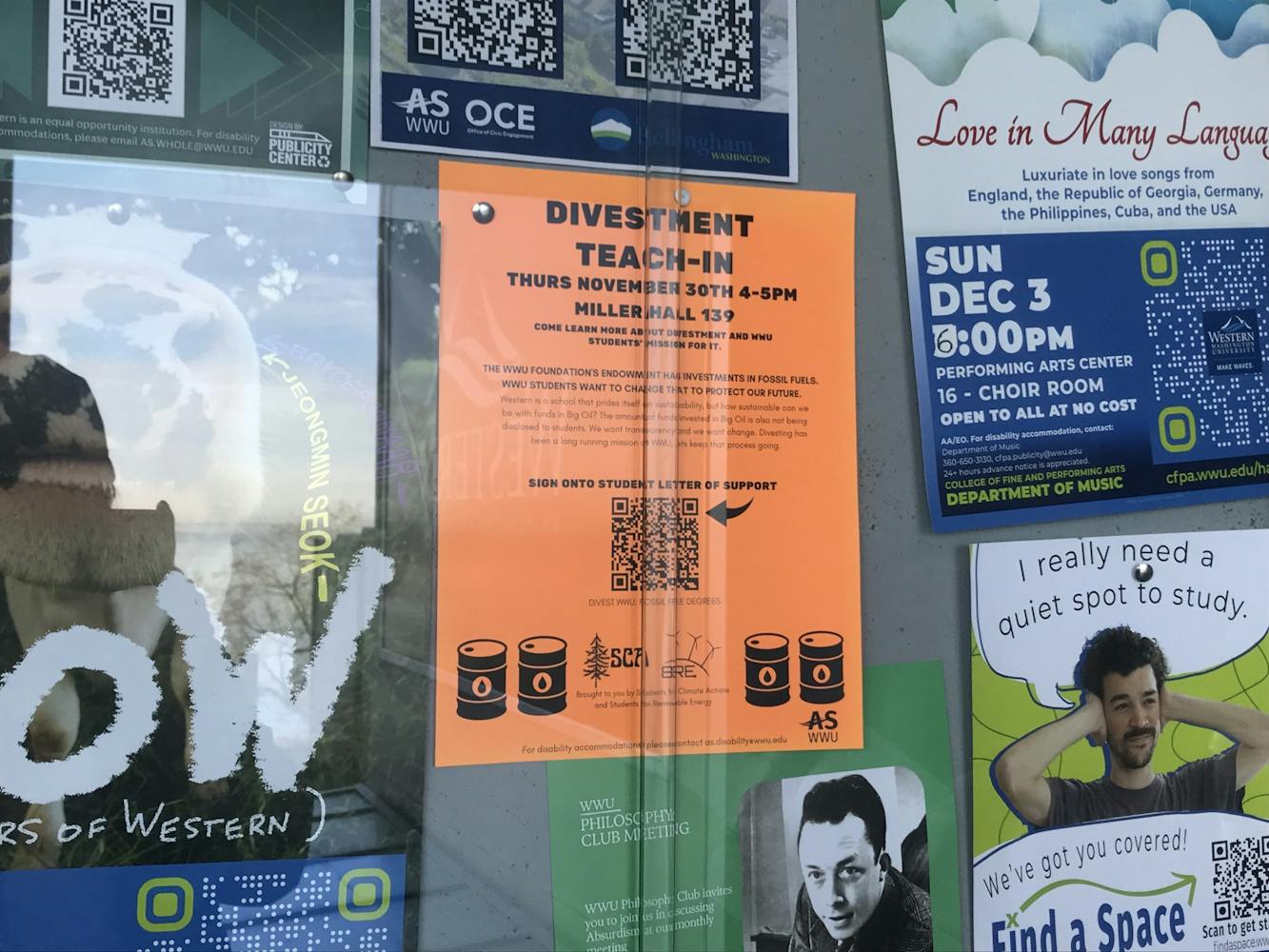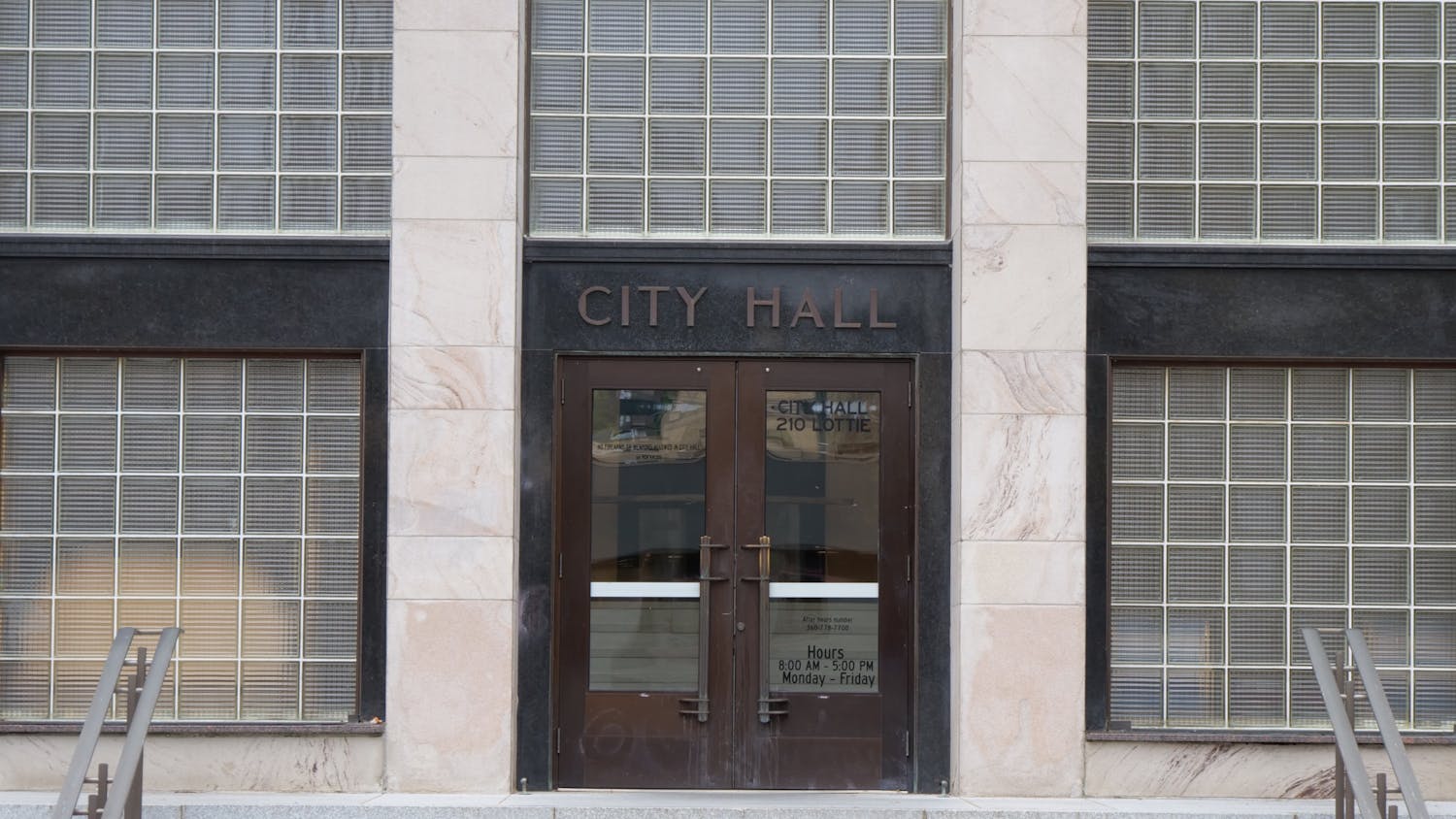The Sustainability Tracking, Assessment and Rating System has given Western Washington University a silver star for more than a decade straight. Not gold, not platinum – silver.
Western is losing points in sustainability when it comes to investments and finances.
In STARS’ assessment of the university, they attribute this rating to the fact that there is no active committee holding investors accountable, nor a report on investment holdings publicly available.
Students and faculty aim to change this.
“Fossil fuel divestment is the removal or transference of financial assets within someone's portfolio from fossil fuels to something else,” said Liam Pratt, Associated Students vice president for sustainability and co-founder of Students for Climate Action.
For over a decade, students and faculty have been advocating for the Western Foundation to divest from fossil fuel companies.
The Foundation is a private, nonprofit section 501(c)(3) that handles endowments that fund student scholarships and other programming after merging with the Alumni Association in 2023.
Most recently, the Associated Students Senate and Associated Students Executive Board have passed a resolution in favor of persistent fossil fuel divestment.
In the 2023 resolution written by Pratt and AS President Keara Ryan, AS will request the Foundation be more transparent about where investments are going by providing an annual report of sustainability and financial performance and adding a student and faculty representative to the Investment Review Committee.
On Monday, Nov. 27, 2023 the Faculty Senate endorsed the resolution, showing their support for student and faculty voices to be included in the Foundation and for investment transparency.
Students like Pratt would also like to see a greater emphasis on environmental, social and governance investment screening in the coming years. ESG emphasizes investing in companies that are trying to better themselves in those three areas.
In 2018, following student activism, over half of the Foundation’s financial assets were transferred from fossil fuels to a sustainable fund, consisting of a proprietary blend of ESGs, said Pratt.
“The sustainable fund excludes investments in coal, tobacco, firearms weapons companies, private prisons and predatory lending companies,” said Mark Brovak, associate vice president of the Foundation, in an email. “The fund emphasizes investment in companies participating in the energy transition, such as companies related to wind power generation.”
This emphasis on ESG factors occurred with the 2018 switch from Commonfund investments to Russell Investments.
Every five years, the Foundation puts out a request for proposal, or RFP, in which the search for a new investment service provider may begin. However, according to Brovak, the Foundation has decided to stay with Russell Investments rather than pursue an RFP process this year.
“The Foundation has no direct investment in any fossil fuel company,” Brovak said in an email.
In response to this sentiment, Pratt counters that while the investment in fossil fuel companies may not be direct, it is still evident. Due to the small size of the endowment compared to other universities, the Foundation’s investments are in a commingled fund, which is often referred to as indirect investments.
As a result, Brovak explained that “managers of these funds do not want to be too constrained by specific exclusion criteria, so these funds often do have some degree of fossil fuel investments in them.”
Russell Investments makes investment decisions on behalf of the Foundation, and according to Pratt, these decisions do not align with fossil fuel divestment.
“What we're directly investing in is this [commingled] fund,” Pratt said. “From there, that money is getting disseminated into these different [fossil fuel] companies within the fund.”
Commingled funds are not publicly listed and are therefore less transparent than others.
“We would like to focus on an investment strategy that could get us completely divested from fossil fuels by the next RFP process,” Pratt said. “So within five years, [the goal is] laying out a plan that will get us fossil fuel free.”
While Russell Investments has a focus on ESGs and limiting fossil fuel investments, 47% of the Foundation’s assets remain unknown to the public, spread across unspecified bonds, private equity investments and real estate, Brovak said.
Along with Students for Climate Action, Western’s Students for Renewable Energy has been instrumental in the push for divestment since 2012.
“We are at a critical point in time for the students and the faculty to once again share with the Foundation how important it is to not be invested in fossil fuel companies, but rather a sustainable future,” said Jill Maclntyre Witt, faculty club advisor for SRE and professor in the College of the Environment.
Other universities in Washington state and worldwide have agreed to work toward what Pratt calls fossil-free degrees.
In September 2022, the University of Washington announced it would divest from direct fossil fuels by 2027.
The decision was spurred largely due to student activism. UW’s Institutional Climate Action chapter listed divesting endowments from the fossil fuel industry as one of their five divestment demands to the university.
“I would like to see the complete removal of the fossil fuel industry and the decarbonization of campuses as quickly as possible,” said Lauren Henrie, a third-year environmental science major and member of ICA at UW. “We're all part of something. We're building it together. It’s not going to be one person or one thing, it’s going to be lots of little things.”
Divestment efforts at Western have both student and faculty advocates. A letter of support for divestment written by the Students for Climate Action has garnished over 700 signatures since Dec. 3.
“As Bill McKibben, founder of 350.org, said at the beginning of the global divestment campaign, if it's wrong to wreck the planet through the burning of fossil fuels, then it's wrong to profit from the wreckage,” Maclntyre Witt said. “We must be guided by what is right and wrong in this regard.”
Craig Dunn, a business and sustainability professor at Western, compared switching to a more sustainable portfolio with more ESGs to Western’s switch from dining service Aramark to Chartwells.
“Everything we do, every purchasing decision we make, including purchasing equities, should be motivated by our values [of sustainability],” he said. “Why should investments be an exception to that?”
Many students are attracted to Western due to its promises of sustainability, surrounded by greenery, recycling programs and solar panels. The sustainable campus section of Western’s website says, “Western is a university of the environment. Sustainability is at the heart of what we do here.”
While there are many programs at Western dedicated to the betterment of the planet, students feel the university must take further steps in supporting a healthier climate – divestment being one of them.
Alyssa Adams, a student in her final year at Western majoring in environmental studies, is new to the Students for Renewable Energy this quarter but already sees the club doing big things.
“I wish people understood how much student voices can make a difference,” she said. “SRE is a small club, but if everyone is calling for divestment and putting pressure on the Foundation to divest from fossil fuels, it is going to make a difference.”
Kenna Peterson (she/her) is a campus news reporter for The Front this quarter. She is a third-year journalism pre-major. When she isn't on campus or at work, she can be found hanging out with her cat, Rigatoni, watching horror movies with her roommates or drinking a London fog.
You can contact her at kennapeterson.thefront@gmail.com.








